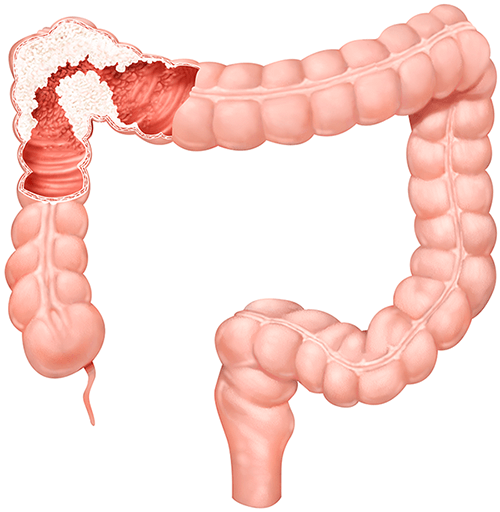Globally, colorectal cancer (CRC), also known as colon cancer, is the fourth most common cause of cancer-related death. But the fact is, CRC is one of the most preventable cancers. Either people aren’t being informed, or they’re not taking the time to get screened by scheduling a colonoscopy. It’s estimated that 23 million adults (1 in 3 adults between the ages of 50 and 75) don’t have a colonoscopy as recommended. If screened in time, CRC can be treated before it’s too late. We can start by spreading the word about CRC and the importance of a colonoscopy.
 What is colorectal cancer (CRC)?
What is colorectal cancer (CRC)?
CRC is a form of cancer that develops in the colon or the rectum. It is caused by a non-cancerous adenoma or polyp growing on the inner lining of the large intestine. Over the course of many years, a non-cancerous polyp may eventually develop into cancer. However, it should be noted that not all polyps will develop into cancer.
Key statistics about CRC
- It is the second most common cancer diagnosed in women.
- It is the third most common cancer diagnosed in men.
- It accounts for almost 900,000 deaths annually.
Causes and risks
Although anyone can develop CRC, those with a family history of it have a greater risk of developing CRC in their lifetime. Lifestyle factors such as diet, weight, and exercise can also contribute to an individual’s risk of developing this type of cancer. Making healthy lifestyle choices can greatly reduce the chance of developing CRC.
Symptoms
- A change in bowel habits, including diarrhea, constipation, or narrowing of the stool, that lasts more than a few days
- Rectal bleeding with bright red blood
- Bloody stool
- Cramping or abdominal pain
- Weakness and fatigue
- Unintended weight loss
If experiencing these symptoms, contact a healthcare professional.
Colorectal cancer is preventable, treatable, and beatable.
In addition to ulcers, tumors, and areas of inflammation, a colonoscopy can also identify pre-cancerous polyps. The average colonoscopy only takes about 30 minutes and only needs to be performed every 10 years. A colonoscopy is a simple screening. And it just may be the first step to beating this cancer once and for all.
—
References:
- Colorectal cancer. American Cancer Society Web Site. https://www.cancer.org/cancer/colon-rectal-cancer.html. Accessed March 17, 2020.
- Dekker E, Tanis PJ, Vleugels JLA, et al. Colorectal cancer. Lancet. 2019. 19;394(10207):1467-1480.